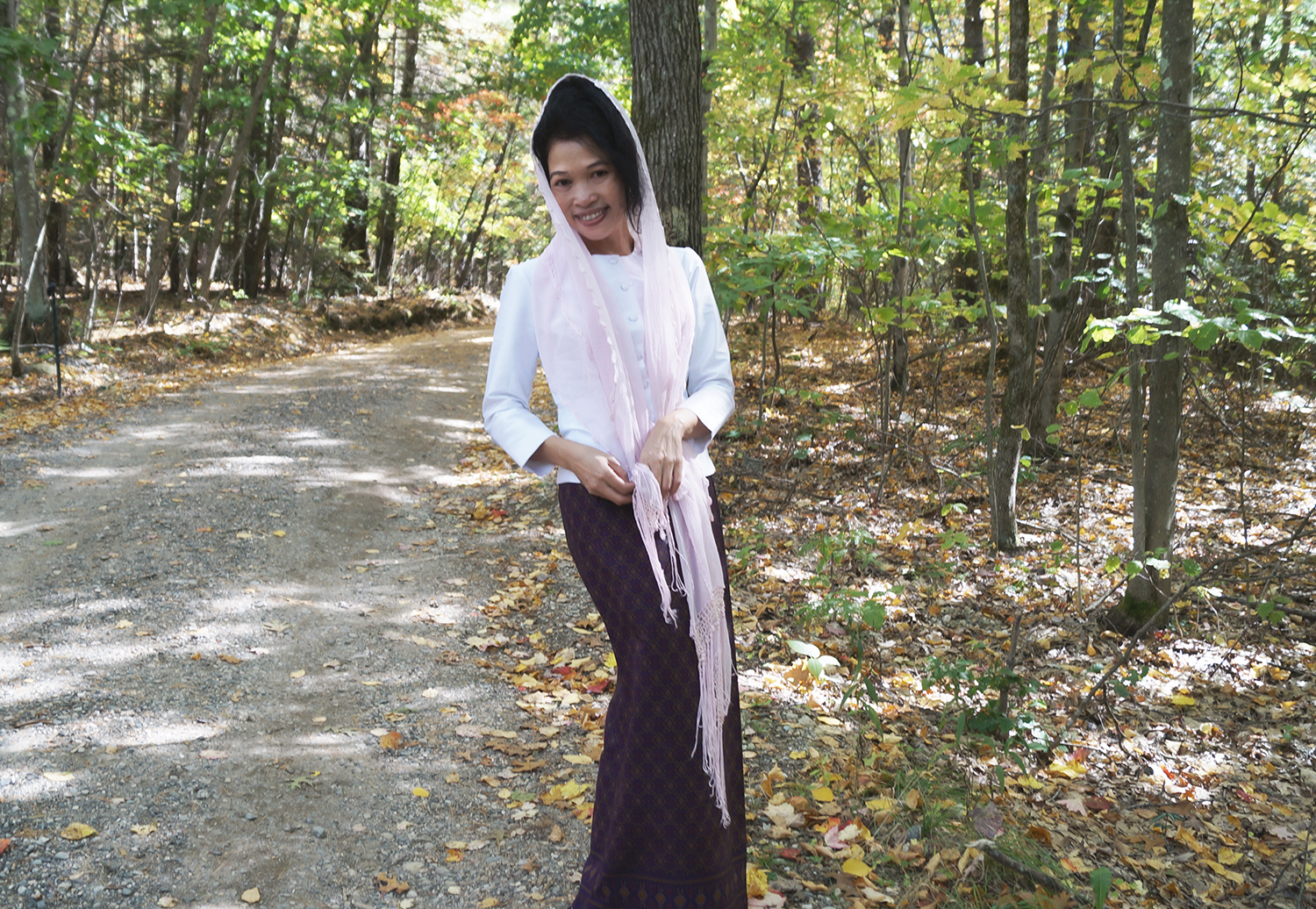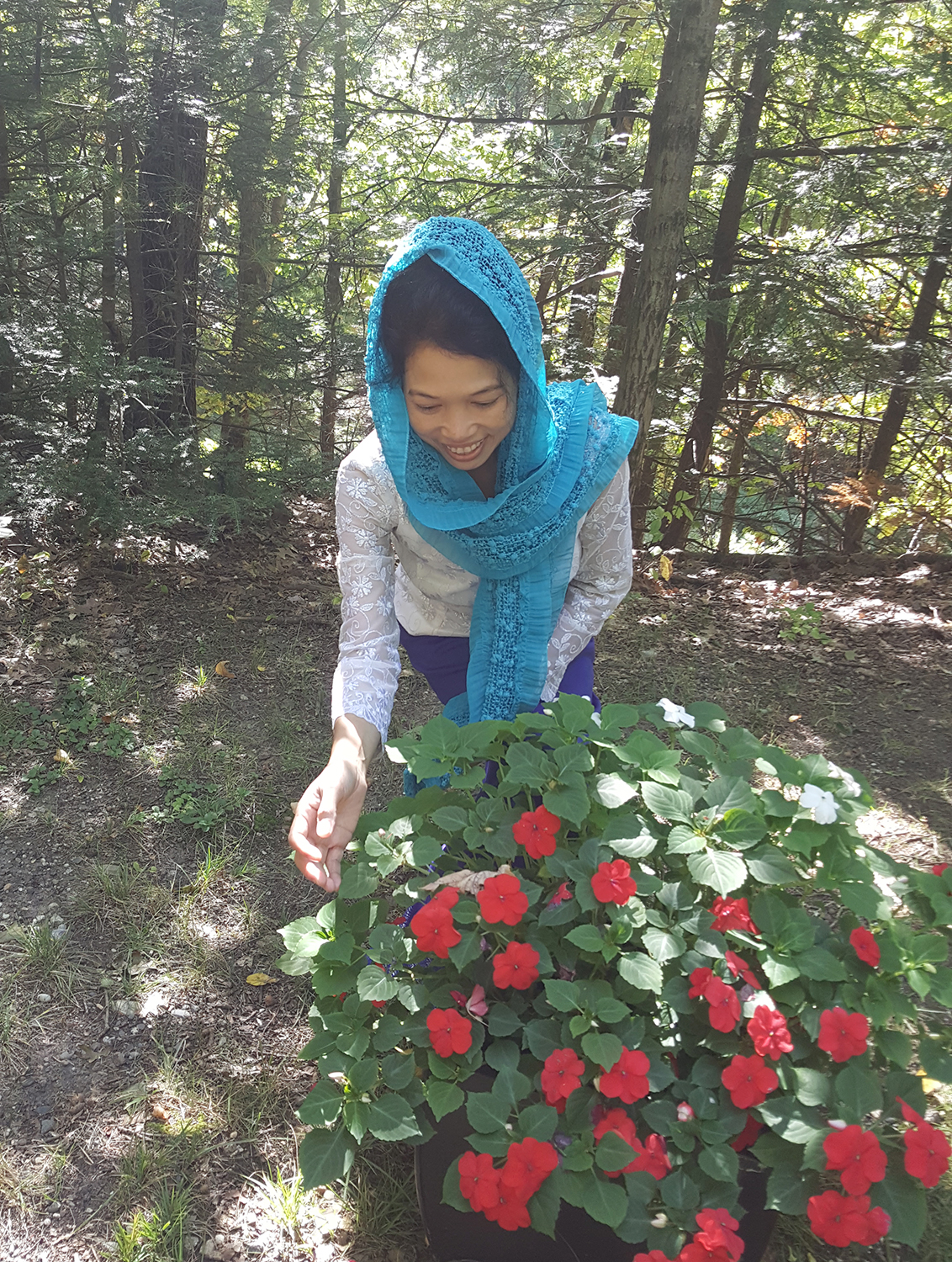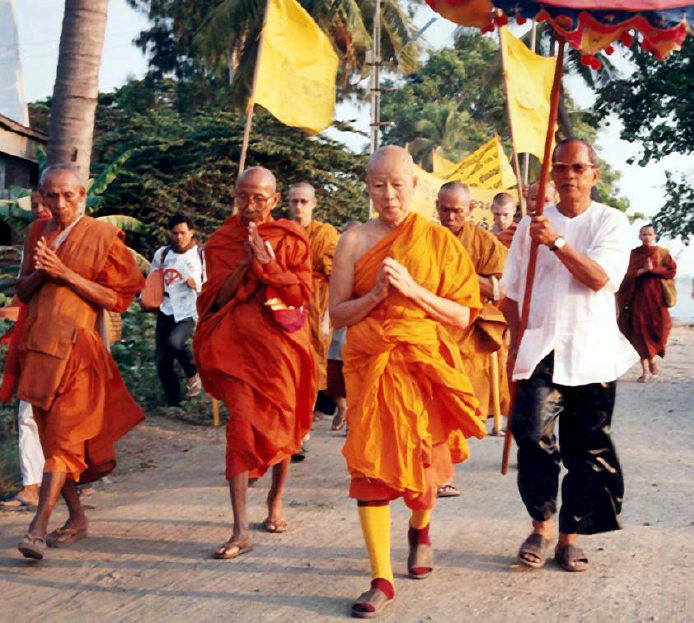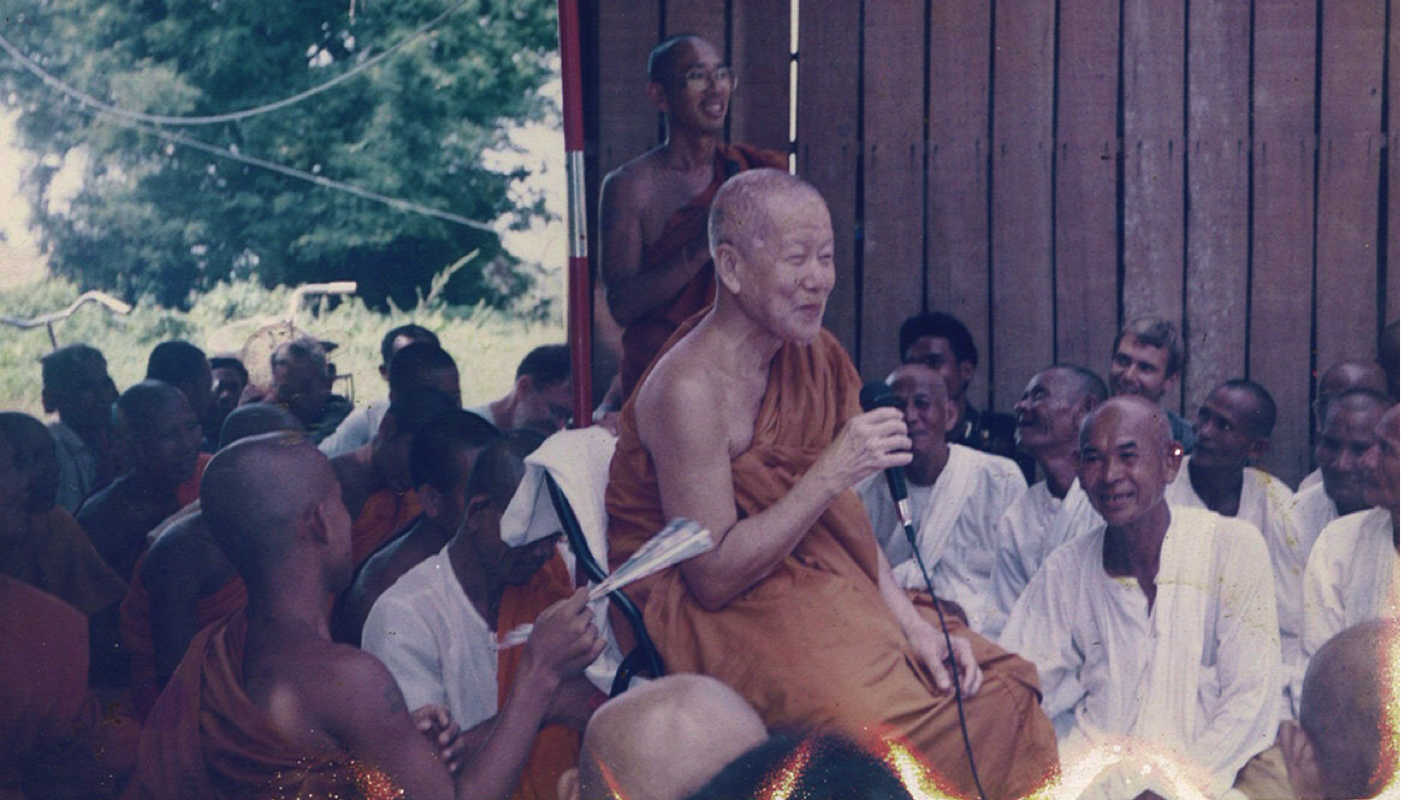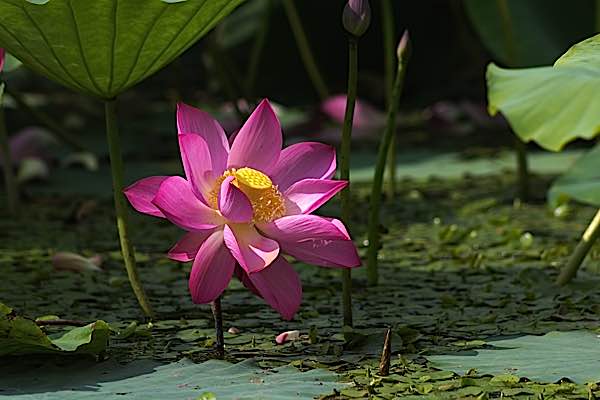-
19 December 4, 2019
-
The world is like a mirror
5 December 4, 2019 -
Double value
1 December 4, 2019 -
Value of relationship
332 December 3, 2019 -
The bitter past
23 December 3, 2019 -
The Story of Thera Revata
Comment December 2, 2019Verse 98: In a village or in a forest, in a valley or on a hill, wherever arahats dwell, that place is delightful.
The Story of Thera Revata
While residing at the Jetavana monastery, the Buddha uttered Verse (98) of this book, with reference to Thera Revata of the Acacia (khadira) Forest.
Revata was the youngest brother of the Chief Disciple, Sariputta. He was the only one of the brothers and sisters of Sariputta who had not left home for the homeless life. His parents were very anxious to get him married. Revata was only seven years old when his parents arranged a marriage for him to a young girl. At the wedding reception, he met an old lady who was one hundred and twenty years old, and he realized that all beings are subject to ageing and decay. So, he ran away from the house and went straight to a monastery, where there were thirty bhikkhus. Those bhikkhus had been requested earlier by Thera Sariputta to make his brother a samanera if he should come to them. Accordingly, he was made a samanera and Thera Sariputta was informed about it.
Samanera Revata took a subject of meditation from those bhikkhus and left for an acacia forest, thirty yojanas away from the monastery. At the end of the vassa, the samanera attained arahatship. Thera Sariputta then asked permission from the Buddha to visit his brother, but the Buddha replied that he himself would go there. So the Buddha accompanied by Thera Sariputta, Thera Sivali and five hundred other bhikkhus set out to visit Samanera Revata.
The journey was long, the road was rough and the area was uninhabited by people; but the devas looked to all the needs of the Buddha and the bhikkhus on the way. At an interval of every yojana, a monastery and food were provided, and they travelled at the rate of a yojana a day. Revata, learning about the visit of the Buddha, also made arrangements to welcome him. By supernormal power he created a special monastery for the Buddha and five hundred monasteries for the other bhikkhus, and made them comfortable throughout their stay there.
On their return journey, they travelled at the same rate as before, and came to the Pubbarama monastery on the eastern end of Savatthi at the end of the month. From there, they went to the house of Visakha, who offered them alms-food. After the meal, Visakha asked the Buddha if the place of Revata in the acacia forest was pleasant.
And the Buddha answered in verse as follows:
Verse 98: In a village or in a forest, in a valley or on a hill, wherever arahats dwell, that place is delightful.Dhammapada Verse 98
Khadiravaniyarevatatthera VatthuGame va yadi varanne
ninne va yadi va thale
yattha arahanto viharanti
tam bhumiramaneyyakam.Source: Tipitaka
-
Anger destroys your inner peace
79 December 2, 2019Buddhism teaches people that the real source of happiness is inner peace. If our mind is peaceful, we shall be happy all the time, regardless of external conditions, but if it is disturbed or troubled in any way, we shall never be happy, no matter how good our external conditions may be. External conditions can only make us happy if our mind is peaceful. We can understand this through our own experience. For instance, even if we are in the most beautiful surroundings and have everything we need, the moment we get angry any happiness we may have disappears. This is because anger has destroyed our inner peace.
“Mind precedes all things; mind is their chief, mind is their maker. If one speaks or does a deed with a mind that is pure within, happiness then follows along like a never departing shadow.” ~ Dhammapada
We can see from this that if we want true, lasting happiness we need to develop and maintain a special experience of inner peace. The only way we can do this is by training our mind through spiritual practice – gradually reducing and eliminating our negative, disturbed states of mind and replacing them with positive, peaceful states.
Source: http://www.parami.org
-
Great compassion
57 December 2, 2019Great compassion makes a peaceful heart.
A peaceful heart makes a peaceful person.
A peaceful person makes a peaceful family.
A peaceful family makes a peaceful community.
A peaceful community makes a peaceful nation.
A peaceful nation makes a peaceful world.”H.H. Maha Ghosananda
A Supreme Patriarch of Cambodian Buddhism -
Do not fasten onto thoughts of the past
8 December 2, 2019People who like to gather up thoughts, worries, etc., to hold onto are no different from prisoners tied down with a ball and chain. To fasten onto thoughts of the past is like having a rope around your waist tied to a post behind you. To fasten onto thoughts of the future is like having a rope around your neck tied to a door in front. To fasten onto thoughts you like is like having a rope around your right wrist tied to a post on your right. To fasten onto thoughts you don’t like is like having a rope around your left wrist tied to a wall on your left. Whichever way you try to step, you’re pulled back by the rope on the opposite side, so how can you hope to get anywhere at all?
As for people who have unshackled themselves from their thoughts, they stand tall and free like soldiers or warriors with weapons in both hands and no need to fear enemies from any direction. Any opponents who see them won’t dare come near, so they’re always sure to come out winning.
But if we’re the type tied up with ropes on all sides, nobody’s going to fear us, because there’s no way we can take any kind of stance to fight them off. If enemies approach us, all we can do is dance around in one spot.
So I ask that we all take a good look at ourselves and try to unshackle ourselves from all outside thoughts and preoccupations. Don’t let them get stuck in your heart. Your meditation will then give you results, your mind will advance to the transcendent, and you’re sure to come out winning someday.
Source: Access to Insight
Translated from the Thai by Thanissaro Bhikkhu -
The Great Compassion
26 December 2, 2019All beings, no matter in whatever existence they may be, wish to escape from the sufferings of old age, sickness and death which are bound to be met as living beings. Nevertheless against their own wish, they are going through miserable conditions of life existence continuously through old, sick and eventually meeting with death. That is the reason why as a Buddha, he had taught his Dhamma knowing fully well that there was no Saviour other than him to save all living beings with his Great Compassion without regard to his discomforts and weariness. This also stands witness to the extent how he had to undergo miseries without having opportunity to gain happiness for, being deterred by his unparalleled Karuna.
Source: http://www.buddhanet.net


